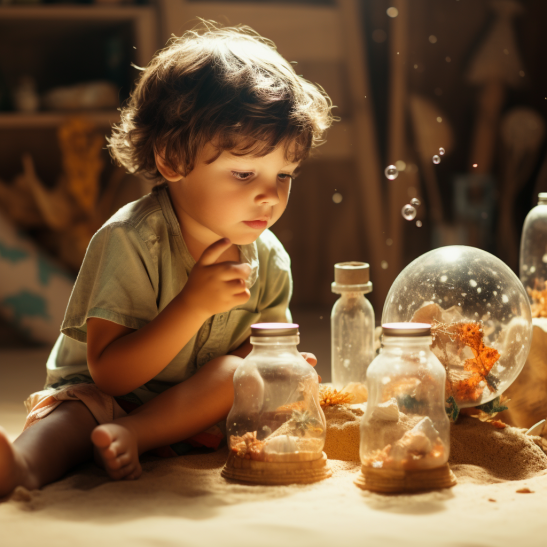Nurturing a World of Sensory Exploration and Learning
As a pediatrician passionate about child development, I understand the vital role that sensory development plays in shaping a child’s understanding of the world. In this comprehensive article, we’ll delve into the importance of sensory development in childhood, highlighting its impact on learning and emotional growth. Parents will find practical suggestions to support their child’s sensory exploration and enriching experiences.
The Significance of Sensory Development
Sensory development is the foundation upon which children build their understanding of the world around them. It encompasses the five senses—sight, hearing, taste, smell, and touch—and is crucial for:
1. Cognitive Growth: Sensory experiences stimulate brain development, enhancing memory, problem-solving, and critical thinking.
2. Emotional Regulation: Sensory activities can help children learn to regulate their emotions, reducing stress and anxiety.
3. Language Acquisition: Sensory exploration fosters language development as children learn to describe their sensory experiences.
4. Fine and Gross Motor Skills: Engaging the senses promotes the development of both fine and gross motor skills.
5. Creativity: Sensory play sparks imagination and creative thinking, encouraging children to explore, invent, and innovate.
6. Self-Discovery: Sensory exploration allows children to learn about themselves, their preferences, and their unique sensory profiles.
Practical Suggestions for Sensory Exploration
Here are practical ways parents can encourage sensory exploration and development in their children:
1. Sensory Bins: Create sensory bins filled with materials like rice, sand, or water for tactile exploration.
2. Nature Walks: Explore the natural world, encouraging children to touch, smell, and listen to the environment.
3. Art and Craft Activities: Engage in art and craft projects that incorporate various textures, colors, and materials.
4. Musical Play: Introduce children to different musical instruments and sounds, encouraging auditory exploration.
5. Cooking Together: Involve children in cooking activities, allowing them to experience different tastes and smells.
6. Scented Playdough: Make scented playdough for hands-on, fragrant sensory play.
7. Sensory Toys: Provide sensory toys that engage different senses, such as textured balls or musical toys.
8. Texture Hunt: Go on texture hunts where children find and touch various textures in the environment.
9. Sensory Storytime: Read books that engage multiple senses, such as touch-and-feel books or books with sound effects.
10. Sensory Gardening: Grow sensory gardens with aromatic herbs, soft flowers, and interesting textures.
11. Taste Adventures: Encourage tasting new and diverse foods to explore different flavors.
12. Sensory Experiments: Conduct simple sensory experiments, such as exploring ice and water or making slime.
13. Barefoot Play: Allow children to play barefoot to experience different textures like grass, sand, and mud.
14. Mindful Sensory Activities: Practice mindfulness through sensory activities, such as deep breathing while focusing on a sensory experience.
15. Sensory-Friendly Spaces: Create sensory-friendly spaces at home where children can relax and explore their senses.
16. Observe and Listen: Encourage children to observe and listen to the world around them, identifying different sounds and sights.
17. Balance Activities: Engage in activities that challenge balance, such as balancing on one foot or walking on uneven surfaces.
18. Scented Art: Use scented markers, paints, or crayons for a multisensory art experience.
19. Nature Scavenger Hunts: Organize scavenger hunts in natural settings, searching for specific textures, colors, and objects.
20. Water Play: Explore water play with different temperatures, water toys, and containers.
21. Reflect and Discuss: After sensory experiences, reflect and discuss the sensations and emotions they evoked.
Nurturing Sensory Explorers
By prioritizing sensory exploration in your child’s life, you’re providing them with a rich foundation for cognitive growth, emotional regulation, and self-discovery. Engaging the senses not only enriches their experiences but also promotes a lifelong love of learning and discovery.
